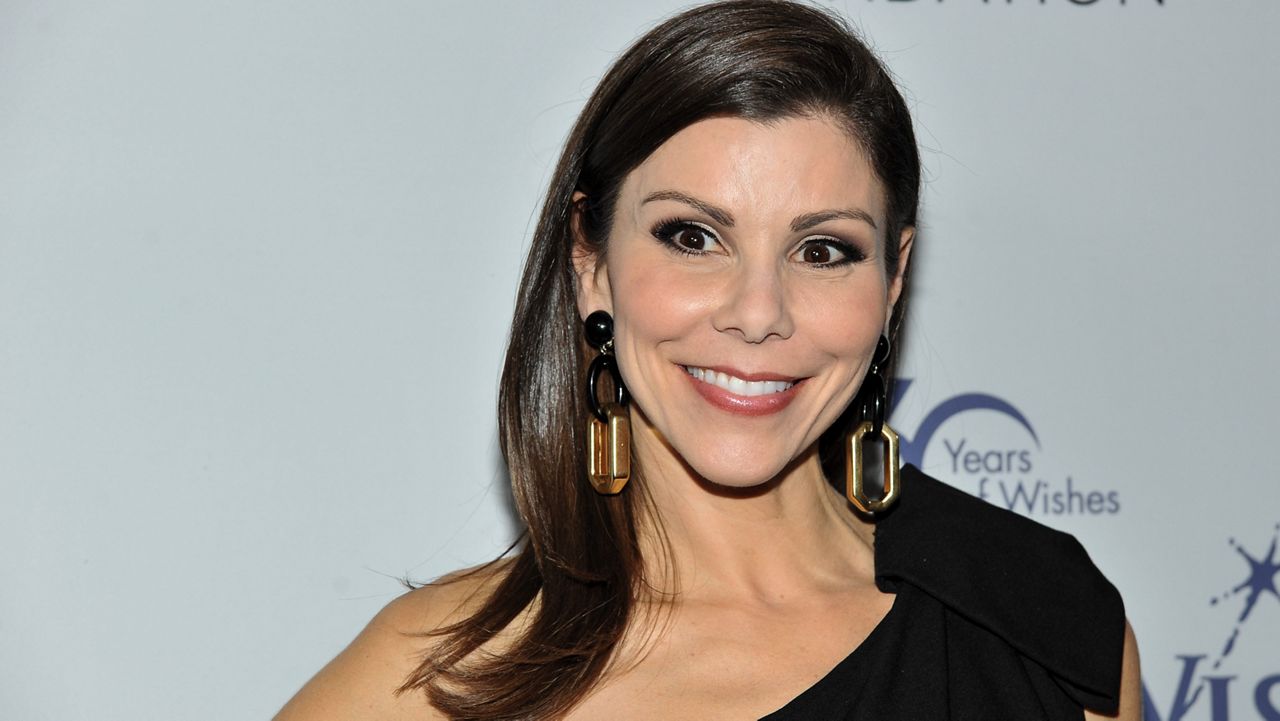NEWPORT BEACH, Calif. — Heather Dubrow was outraged. Amidst the lipstick-stained champagne flutes and half hugs of her lavish party, someone had eaten the frosting ribbon on the cake. Her cake – commemorating the change of her last name.
Words were said. Feelings were hurt. Cameras rolled.
These are the kinds of fractious moments that have allowed “The Real Housewives of Orange County” to endure. Heading into season 16, the show’s brand has reached such potency that it has spawned a total of 11 Housewives series. The Dallas and D.C. versions have ended, Miami is relaunching and Dubai is on the way.
Bravo’s hold on the brand is so lucrative it has even licensed out the format.
And the “Real Housewives of Orange County” was the first.
The Orange County ladies return for their latest season Dec. 1, in which Dubrow rejoins the cast after a five-year absence.
Douglas Ross, founder and president of Evolution Media, which produces the show, also runs “The Real Housewives of Beverly Hills.” The shows have established a kind of storytelling that includes plenty of arguing with plenty of unintentional humor.
The formula has made the cast stars. As the show has gained popularity, so have the housewives, earning book deals, endorsements and other bankable exposure. Plus salaries Ross called “generous.”
Each cast member understands what they can earn based on the number of seasons they’ve been on the show.
“Knowing that nobody stays on the show forever and the show is stronger than any one cast member helps,” Ross said. “Knowing they are replaceable also helps.”
Reality TV itself has thrived on the naturally occurring conflict found in shows like “Cops” or game shows like “Survivor.” The Housewives shows and others with complete casts are sometimes criticized as scripted.
There’s realism and what Ross calls “constructed realism” where the producer's fingerprints can sometimes appear distinctly on the final product. In latter-day reality TV, he sees the pendulum swinging back to programming that still observes the emotionally fraught entanglements of rivals but avoids creating it.
Troy DeVolld has seen some of the same things. A longtime producer for reality TV shows, DeVolld’s latest work has been done on “Paris in Love.” The series focuses on reality TV superstar Paris Hilton, an object of the media spotlight.
The new show offers a different look at Hilton, far from the party-girl known for her fallout with co-star of “The Simple Life” Nicole Richie.
“The pacing (of” Paris In Love”) is downright genteel compared to most reality stuff. It takes its time with the story and you feel like you get to experience the person instead of the product,” he said.
DeVolld and Ross both point to the growing sophistication in the audience who they said have become more accustomed to spotting disingenuous exchanges.
Bravo’s all-in move on reality TV has been bolstered by the conversation it has been able to build around the shows, DuVolld said. That strategy he credits to Andy Cohen, the 53-year-old host and executive producer of “Watch What Happens Live with Andy Cohen.” The talk show allows the network another promotional tool and a different format for fans to explore the cast members of their favorite shows.
Among his many duties, Cohen is a longtime executive producer of the Housewives franchise.
”Every time he has a guest on his show he’s helping foster what feels like a personal connection between his guest and the audience. He’s got a talk show whose only purpose is to push forward whatever Bravo is doing,” DuVolld said. “Andy and bravo are the brand.”
As the OC housewives continue the show in its advanced years, Ross believes viewers have moved away from a fevered interest in meanness. Trainwreck arguments will always draw attention and cut great promos, but an appetite for sincerity has continued to grow.
“As the show has matured, the audience has matured, and once again is more interested in the individual stories and what make (the housewives) tick. What struggles they have in their marriages what struggles they have being mothers,” Ross said.
Villains are redeemed, antics forgiven, or forgotten until a time where they are convenient to remember.
The only question left for “The Real Housewives of Orange County” is how long it can continue.
“Who knows?” Ross said. “Fingers crossed.”



